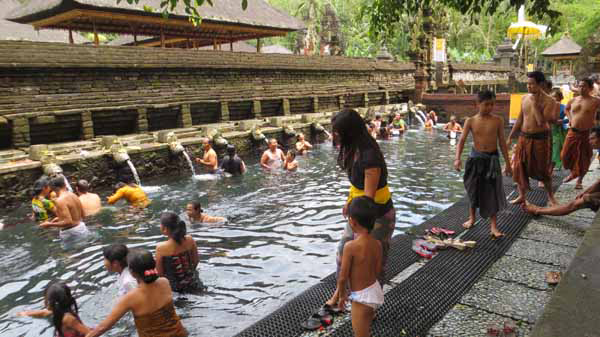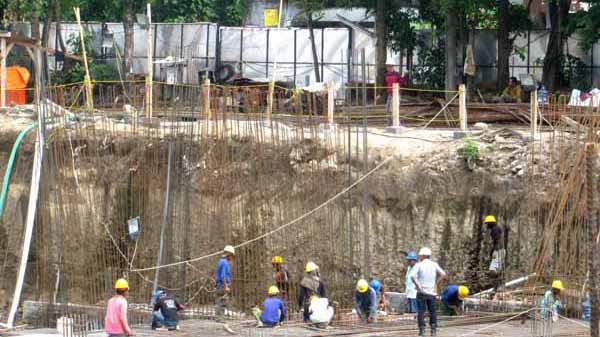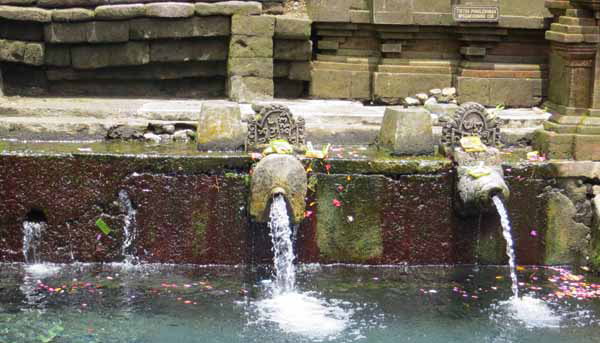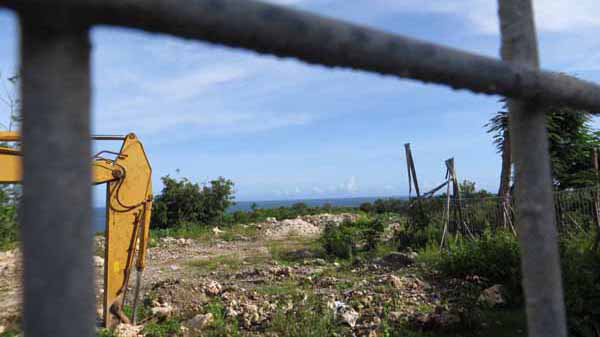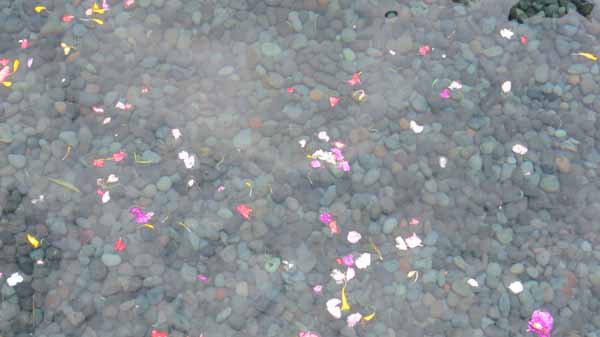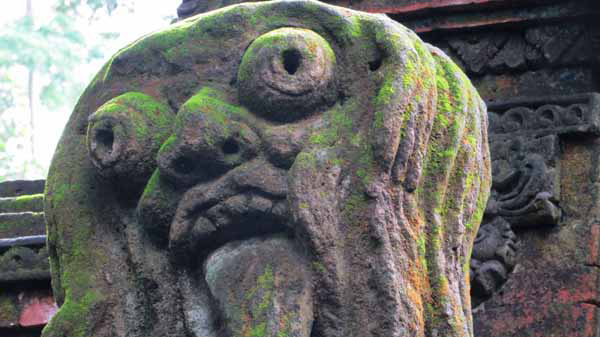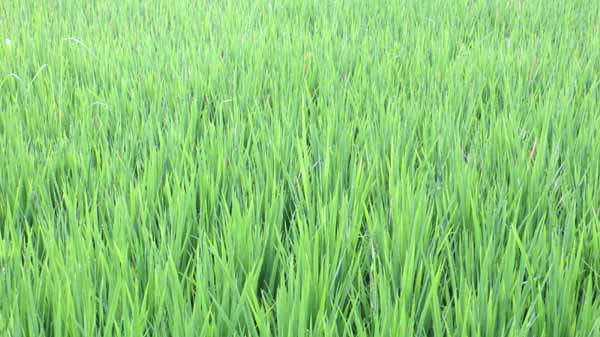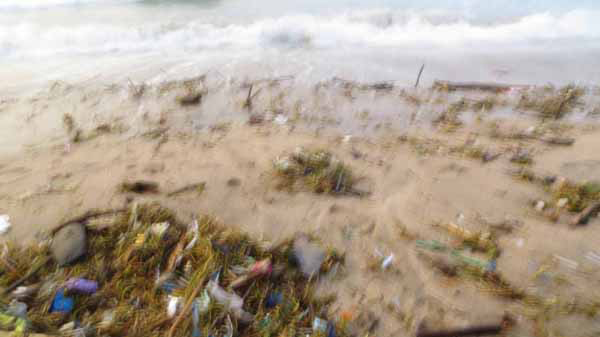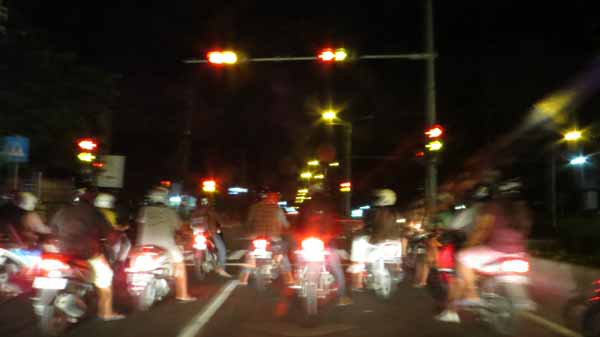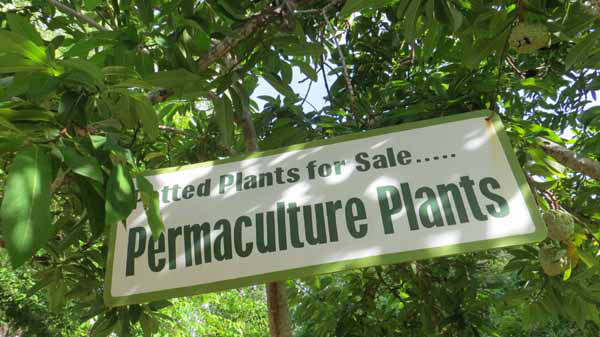Photo essay – Is tourism killing Bali?
Photo essay by Jenny Denton
Its natural beauty and colorful Hindu culture have drawn visitors to Bali since the 1930s. But more than three decades of rampant development since mass tourism took hold have left the island and its people in a critical state. Bali is struggling with a severe water shortage, huge volumes of waste, a loss of agricultural land and forest, and an influx of foreign investors and workers that threaten to overwhelm the Balinese people. As local environmentalists and other commentators explain, though, visitors to Bali have a role to play in addressing the problems.
“I was born in Kuta in the ‘70s and I’ve seen things change so much – especially in Kuta, and other places in Bali – a lot of changes,” says I Gede Ari Astina (Jerinx), environmentalist and drummer for punk rock band Superman Is Dead.
“The [tourism] industry, the machine, is destroying this island. So someone has to do something.”
Professor Thomas Reuter, from Melbourne University’s Asia Institute explains that “the myth of Bali as a worldly paradise or paradise on earth began back in the ’30s and it became more broad-based in the 1960s, particularly as some of the beat generation and the ‘60s–‘70s generation discovered it was possible to travel the world on a shoestring.”
“Small hotels shot up in places like Kuta, usually family‑operated by Balinese people.”
“It was not until the ‘80s that you really got the mass tourism of people who are not just traveling around the world backpacking but are going for a two week holiday wanting to party and that sort of thing.”
“During the Suharto era tourism development became a sort of megaproject—huge hotels with enormous water usage were built, often near to very important temples, which in an Australian context you might call sacred sites.”
“Even during that time of political repression there were some protests about the displacement of rice farmers. But the developers would simply hire some thugs to break the dykes and cut off the farmers’ water supply so they would be more willing to leave.”
“Irrigation is everything in Bali. Balinese agriculture is reliant on irrigated rice traditionally.”
I Gede Ari Astina (Jerinx): “There are so many, so many issues – for example, the water crisis. We don’t have enough clean water for everyone because they just keep building hotels and malls and resorts.”
“We have enough of them already and they just keep building them.”
Thomas Reuter: “Tourists use enormous amounts of water compared to Balinese people. Most people in Bali still have a traditional bathroom, where two people can have a shower with a large bucket of water. The water usage per day of tourists is very much greater. And there are all the swimming pools and the gardens that have to be watered. Bali has now reached a point where the water supply is absolutely exhausted. There isn’t any more water to be distributed and in fact agriculture has suffered.”
From the ROLE (Rivers, Oceans, Lands & Ecology) Foundation: “Despite the high levels of regional and international investment in Bali’s tourism sector many people are not beneficiaries of rapid development, whilst at the same time they are impacted by loss of arable land, environmental degradation and development‑driven inflation on the prices of everyday basic commodities. In addition, development-linked overfishing has reduced traditional job opportunities in this sector for coastal communities.”
“Labor-related immigration into Bali has increased competition in the employment market and this particularly impacts the poor and unskilled from traditional agricultural and coastal economies. Illiterate and unskilled people have limited work opportunities and are increasingly unemployed, underemployed and underpaid.”
I Gede Ari Astina (Jerinx), again: “After the bombing the government was trying to sell everything cheap to attract people to come. And it just got to a point where everything was too cheap and too easy…”
“In the name of the economy, in the name of surviving, we’re having big sales now in Bali. We’re selling our land, we’re selling our pride, we’re selling our environment. We’re selling everything.”
Made Sana, a tour guide in Ubud: “In 10 years maybe no more rice fields.”
I Gede Ari Astina (Jerinx): “This is our island, this is our home, but very, very few Balinese own something in this island. We only work for someone or get hired by someone. Basically we are slaves in our own home. A lot of people predict the future of Bali will be that everything will be owned by non-Balinese and we’ll just work for them and this island won’t be ours anymore.”
“There’s pollution, traffic, the crime rate, the waste—plastic waste everywhere.”
Tri Wahyudi Purnomo from the Bali Fokus Foundation http://balifokus.asia/balifokus/: “In Bali, approximately 10,000 tonnes of waste is produced a day (or maybe more), around 70 per cent organic waste and 30 per cent non-organic waste.”
The ROLE Foundation again: “More than 5,000 tonnes of illegal trash is dumped every day in the rivers, the sea, the drains and the gullies. When rubbish is not dumped, it is burnt, and not only is the environment threatened but people’s health as well.”
“Liquid, air and solid waste are washing down and polluting the beaches, the reefs and the oceans.”
Tri Wahyudi Purnomo from Balifokus again: “Hotels and villas are growing year after year. With the three big projects to prepare Bali for modernisation, globalisation and liberalisation—the airport expansion, the toll road and the underpass—you can imagine how much more crowded it will get and how much more the waste problem is going to grow if it’s not properly handled. The reality is that almost all rubbish dumps are overloaded.”
From Ubud monkey forest website: “Despite the fact that many species of macaques thrive in areas that are heavily utilized by humans, there is evidence that the viability of Balinese long-tailed macaques (the ability of macaques to continue to thrive) may be dependent upon the conservation of Bali’s forested areas.”
Wayan Gendo Suardana from WALHI (Friends of the Earth Indonesia) Bali: “Bali is badly in need of at least 8 percent more forest, as the ideal quantity of forest cover is a minimum 30 percent of the total area.”
Jerinx, again: “Because the education in Bali is not as good as some other countries, it would be cool if people who come to Bali can share knowledge and share goodwill with the locals here … by volunteering or just by good example”.
The ROLE Foundation has built an ‘island sustainability centre’ on 1.5 hectares of land at Sawangan, Nusa Dua, on the Bukit Peninsula. “ROLE Foundation is a non-profit humanitarian organisation whose aim is to improve the education, wellbeing and self-reliance of people living in underprivileged circumstances, whilst ensuring environmental resilience and sustainability.
Thomas Reuter from Melbourne University: “The way people organize their holidays and most importantly where they stay and what they do does make a difference, and it’s important to be aware of that and try to spend your money where you think it might actually make a difference to the local people, because that is certainly one way to empower them.”
Jerinx: “For the long term it’s very important that tourists set a good example. If you can’t do something in your country, don’t do it in Bali. It’s very important so that everyone can see the good Bali, the beautiful Bali.”
“That should be the reason to come here, not because it’s cheap and you can do whatever you want. If that’s your reason, maybe better not come.”
Click here to see a list of Environmental and other NGOs working in Bal:




